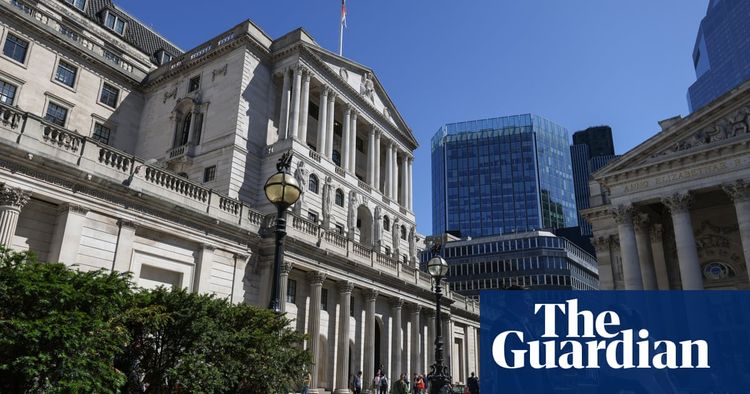Bank of England cuts interest rates by 0.25 points to 4.75%

The Bank of England has lowered interest rates, even though it cautioned that Rachel Reeves’s budget will make it harder to fight against high inflation, pushing the rate above its 2% target for an additional year than expected.
As anticipated by many in the financial sector, the Bank's monetary policy committee (MPC) made a significant decision, voting eight to one in favor of lowering the base interest rate from 5% to 4.75%. This move aims to relieve some of the financial strain on both households and businesses caused by elevated borrowing expenses.
Nonetheless, the central bank indicated that the chancellor's plans for taxes and spending could increase inflationary pressures, even though they would also help accelerate economic growth. This situation is expected to be highlighted by the government's opponents.
In its assessment of last week's budget, the Bank stated that it anticipated the chancellor’s £70 billion in extra spending, supported by increased taxes and borrowing, would raise overall inflation by approximately 0.5 percentage points and boost gross domestic product (GDP) by about 0.75%.
The report indicated that the effects would be influenced partly by Reeves's proposal to increase the employer national insurance contributions (NICs) and the national living wage. This development prompted Catherine Mann, an external economist and member of the MPC, to advocate for maintaining interest rates at 5%.
Andrew Bailey, the governor of the Bank, indicated that interest rates are expected to decrease in the future. However, he advised caution regarding expectations for swift changes, given ongoing worries that inflation may remain above target levels and become ingrained in the economy.
"We need to ensure that inflation remains near our target, which means we can't lower interest rates too rapidly or by too large an amount. However, if the economy progresses as we anticipate, it's probable that interest rates will keep decreasing gradually from this point," he stated.
Inflation decreased to 1.7% in September; however, the Bank has cautioned that this main rate is expected to rise above the government's target in the coming months. This is largely due to the increase in the Ofgem energy price cap for households in Great Britain, which takes effect in October.
In its most recent predictions, the Bank stated that it anticipates inflation will reach around 2.75% by the middle of next year. It is also expected to stay above the target until 2026, before declining in 2027. This timeline is now a year longer than what was projected in its earlier forecasts released in August.
Reeves mentioned that lowering the interest rates would be great for countless families. However, he pointed out that households are still dealing with difficulties resulting from Liz Truss's mini-budget.
She mentioned, “The reduction in interest rates today will be a relief for millions of families, but I fully recognize the significant challenges that households are experiencing due to the previous government's mini-budget."
“The first budget from this government outlines our commitment to making long-term choices that will strengthen the foundations for change. We are investing in the NHS and working towards revitalizing Britain, all while making sure that hardworking individuals won’t see an increase in their taxes on their paychecks.”
Experts had cautioned that Labour’s first budget in 14 years could jeopardize efforts to reduce inflation by increasing government spending and borrowing, which might add to inflationary pressures.
Economists have warned that the tariffs on imports to the US, which new President-elect Donald Trump has suggested, could lead to higher inflation and negatively impact the global economy. Nevertheless, the US Federal Reserve is anticipated to lower interest rates by 0.25 points later today.
In August, Threadneedle Street lowered interest rates for the first time in four years, reducing them by a quarter-point due to a significant drop in inflation this year. Bailey indicated that rates could decrease further, mentioning in an interview with the Guardian last month that advancements in the fight against inflation would enable the Monetary Policy Committee (MPC) to adopt a more assertive approach.
It is anticipated that approximately 800,000 fixed-rate mortgages with interest rates of 3% or lower will be refinanced annually until the end of 2027.







































































